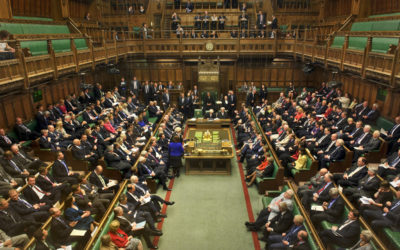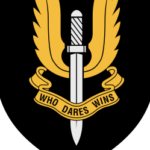Fox urged to recognise conscientious objection in Armed Forces Bill
ForcesWatch press release
Defence Secretary Liam Fox is being urged to uphold the right of armed forces personnel to be given a discharge if they develop a conscientious objection.
Defence Secretary Liam Fox is being urged to uphold the right of armed forces personnel to be given a discharge if they develop a conscientious objection.
The call comes as Fox prepares to present the Armed Forces Bill to the House of Commons today (10 January).(1) ForcesWatch said that the Bill is an opportunity for politicians to demonstrate their commitment to the human rights of members of the forces by bringing the process of declaring a conscientious objection out of obscurity.(2)
They highlighted the example of Michael Lyons, a medical worker in the Royal Navy who found that, after becoming aware of what was happening in Afghanistan, he could no longer participate in the war there. His application for conscientious objection was turned down and he only discovered he had the right to appeal by consulting At Ease, an organisation which advises serving personnel.(3)
Mr Lyons gave a strong defense of his position at a hearing of the Advisory Committee on Conscientious Objection (ACCO) last month. Despite this, ACCO has advised Liam Fox to refuse to discharge Mr Lyons and a final decision from the Defence Secretary is awaited.
In theory, the law already grants troops the right to apply for discharge if they develop a conscientious objection. But Forces Watch pointed to evidence that many personnel are unaware of this right and that the procedures for applying for it are unclear and poorly publicised. (4)
Emma Sangster of ForcesWatch said:
“Respect for conscience is the hallmark of a democratic society. Members of the armed forces see and experience things unimaginable to most of us and it is no surprise that this can alter their beliefs.
“Parliament can ensure, through the Armed Forces Bill, that the right to conscientious objection is mentioned when new recruits sign up, that information about it is readily available and that those who apply for discharge are taken seriously.
“We know that many serving members of the armed forces have objected to recent conflicts on moral grounds yet the Advisory Committee on Conscientious Objection has not met since 1996. (5,6) This indicates just how difficult it is for conscientious objectors to find their way through this very opaque process and to have their beliefs respected.”
ForcesWatch believes that the Armed Forces Bill can also uphold human rights by raising the minimum age of recruitment into the armed forces from sixteen to eighteen and reducing the minimum length of service. The UK is the only country in Europe to recruit sixteen-year-olds into the forces, and one of only twenty in the world – the others include North Korea, Iran and Zimbabwe.(7)
Notes
1. The Armed Forces Bill will be presented for its second reading in the House of Commons today (10 January) by the Defence Secretary, Liam Fox. An Armed Forces Act is passed by Parliament every five years.
2. ForcesWatch is a network launched in 2010 concerned with ethical issues around armed forces recruitment and the rights of forces personnel.
3. ‘Navy medic loses appeal over objections to Afghan duty’ http://www.telegraph.co.uk/news/newstopics/politics/defence/8209595/Navy-medic-loses-appeal-over-objections-to-Afghan-duty.html
4. Serving members of the forces legally have a right to apply for discharge if they develop a conscientious objection. However, evidence from At Ease, a forces helpline, suggests that many are unaware of this right. No reference is made to it on the Notice Paper, the contract a recruit signs on joining the armed forces. For more information on conscientious objection, see, ‘Informed Choice? Armed forces recruitment practice in the United Kingdom’ http://www.informedchoice.org.uk/informedchoice/index.php
5. See ‘At least 1,000 UK soldiers desert’ http://news.bbc.co.uk/1/hi/uk/5024104.stm. The Ministry of Defence does not provide figures on the number of applications made for discharge due to conscientious objection, only for those that are successful. Only four were granted between April 2001 and March 2006.
7. The minimum length of service for forces personnel is currently four years (over 18s in the army), three years after training (air force) or three and a half years after training (navy). People joining the army before turning 18 are obliged to commit themselves until their 22nd birthday.
See more: conscientious objection, legislation & policy, ForcesWatch, Michael Lyons








